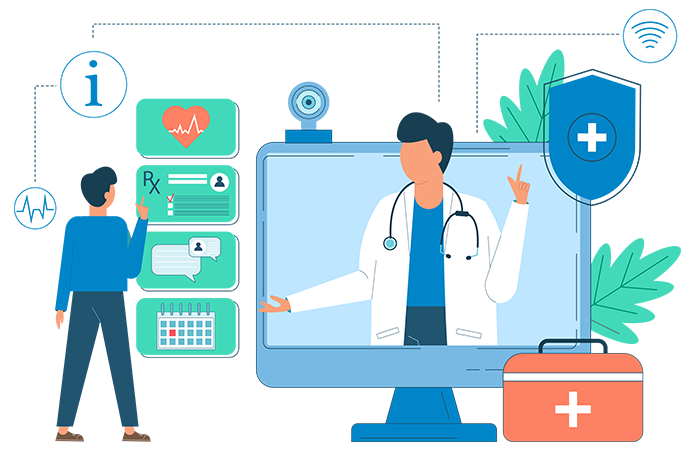26 of the 48 state Medicaid agencies studied could not report the number of “critical incidents” — such as abuse, neglect or exploitation.
You are here
Monitoring at home will be the norm for older adults
 Covid-19 fallout pushed the care industries into the home. A sweeping set of changes from that time that may have appeared temporary. But a number of these changes are likely permanent. Telehealth vs. in-person: the Covid-19 public health emergency declaration to reimburse doctors for providing telehealth services for Medicare recipients has been repeatedly renewed. Bills are in Congress will make it permanent. Medical practices are now offering choices to patients – in person or telehealth? Home care vs. assisted living – the demand is for home care. Hospitals continue to close, especially in rural areas. Acute care delivery at home for Medicare recipients has been endorsed by the American Hospital Association – and bills supporting it may pass. Finally, the CMS-created codes for remote patient monitoring (RPM) can be used for reimbursement of chronic disease monitoring services.
Covid-19 fallout pushed the care industries into the home. A sweeping set of changes from that time that may have appeared temporary. But a number of these changes are likely permanent. Telehealth vs. in-person: the Covid-19 public health emergency declaration to reimburse doctors for providing telehealth services for Medicare recipients has been repeatedly renewed. Bills are in Congress will make it permanent. Medical practices are now offering choices to patients – in person or telehealth? Home care vs. assisted living – the demand is for home care. Hospitals continue to close, especially in rural areas. Acute care delivery at home for Medicare recipients has been endorsed by the American Hospital Association – and bills supporting it may pass. Finally, the CMS-created codes for remote patient monitoring (RPM) can be used for reimbursement of chronic disease monitoring services.
Tech services for remote monitoring of people and patients took off and stayed aloft. The stampede into the home boosted demand for broadband access. The availability of high speed Internet enabled the growth in smart home technology for older adults. From in-home motion sensors to Amazon Care to Alexa Together, homes of older adults will continue to be smarter and more useful, especially for healthcare. According to Business Intelligence, RPM growth (post Covid-19) is expected to grow from 45 million users to 70.6 million users by 2025. Healthcare professionals agree that RPM use is expanding and predict it will continue.
PERS vendors seize the remote monitoring opportunity. The PERS industry also sees an opportunity to expand their offerings. One-time PERS company VRI switched to Remote Patient Monitoring (Vitals) several years ago – and was acquired last year by a healthcare services company. Anelto just announced an RPM partnership with BioIntellisense for patients to take their own vital signs. And most recently, PERS vendor MobileHelp, which already had its ClearArch RPM offering, was acquired by Aurora Health, which had already acquired a Home Care franchise business, Senior Helpers. Why add RPM to PERS if you’re a healthcare provider – and with home care workers in addition? Responding to falls with emergency response seems like a logical addition of care for individuals already being monitored for chronic conditions.
Is this a temporary pendulum swing or a permanent change? The post-Covid demand for in-home and self-care services plus the baby boomer growth trajectory has had multiple and permanent impacts. Note that the oldest baby boomer is now aged 76. Baby boomers are turning 65 at a rate of 10,000 per day until 2030. Note the prevalence of chronic conditions among older adults (60% have at least two). Consider that the RPM/PERS combination creates a Medicare reimbursement growth trajectory for the PERS industry. Add the fact that older adults will insist on and receive care in their homes and observe the boom in home care demand. But there are not enough workers to meet the demand for any of the older adult care services. The future? That’s where all of these technologies combine together with a well-managed, affordable, even reimbursed, service (like RPM), available nationwide. This will be the only way older adults will be able to remain at home.
